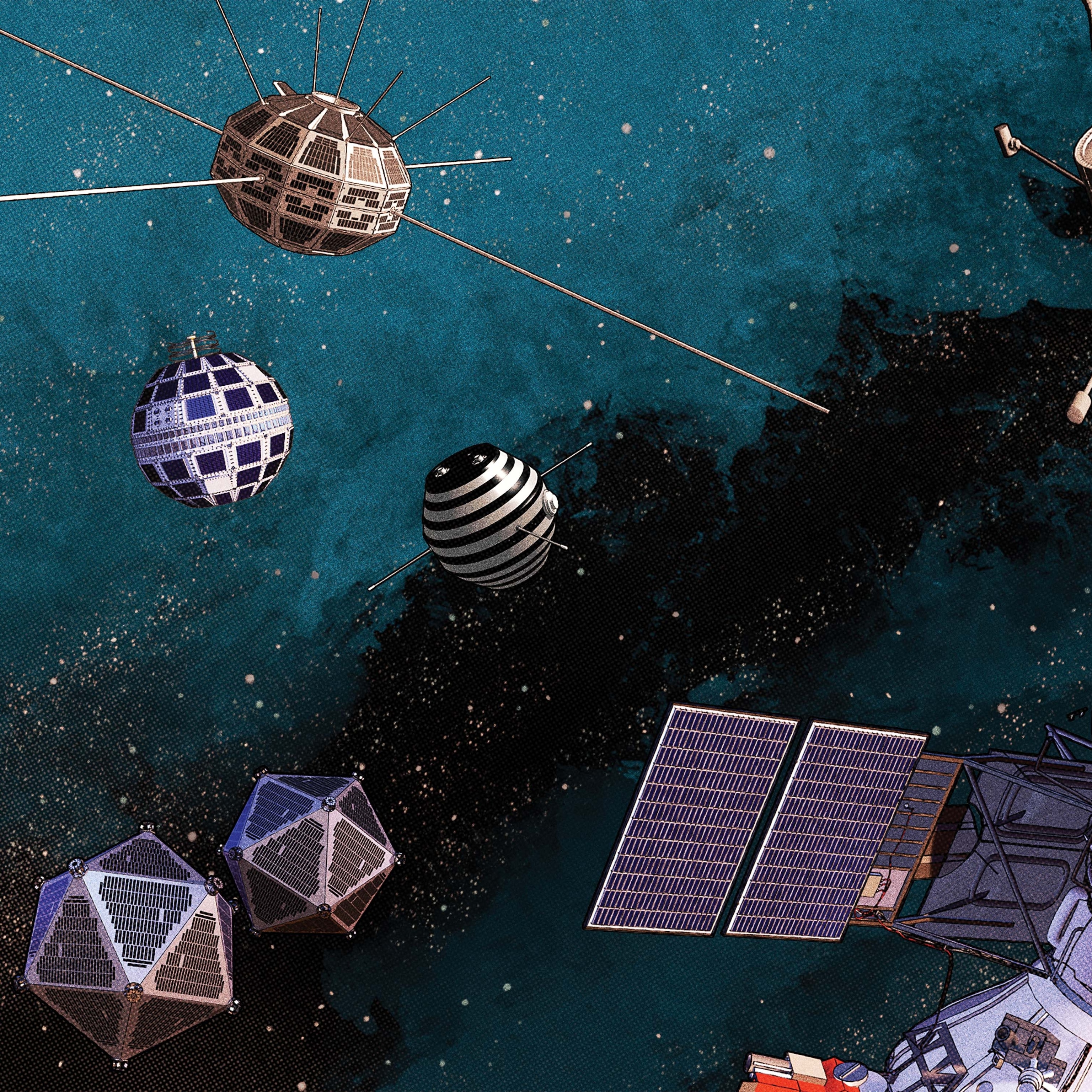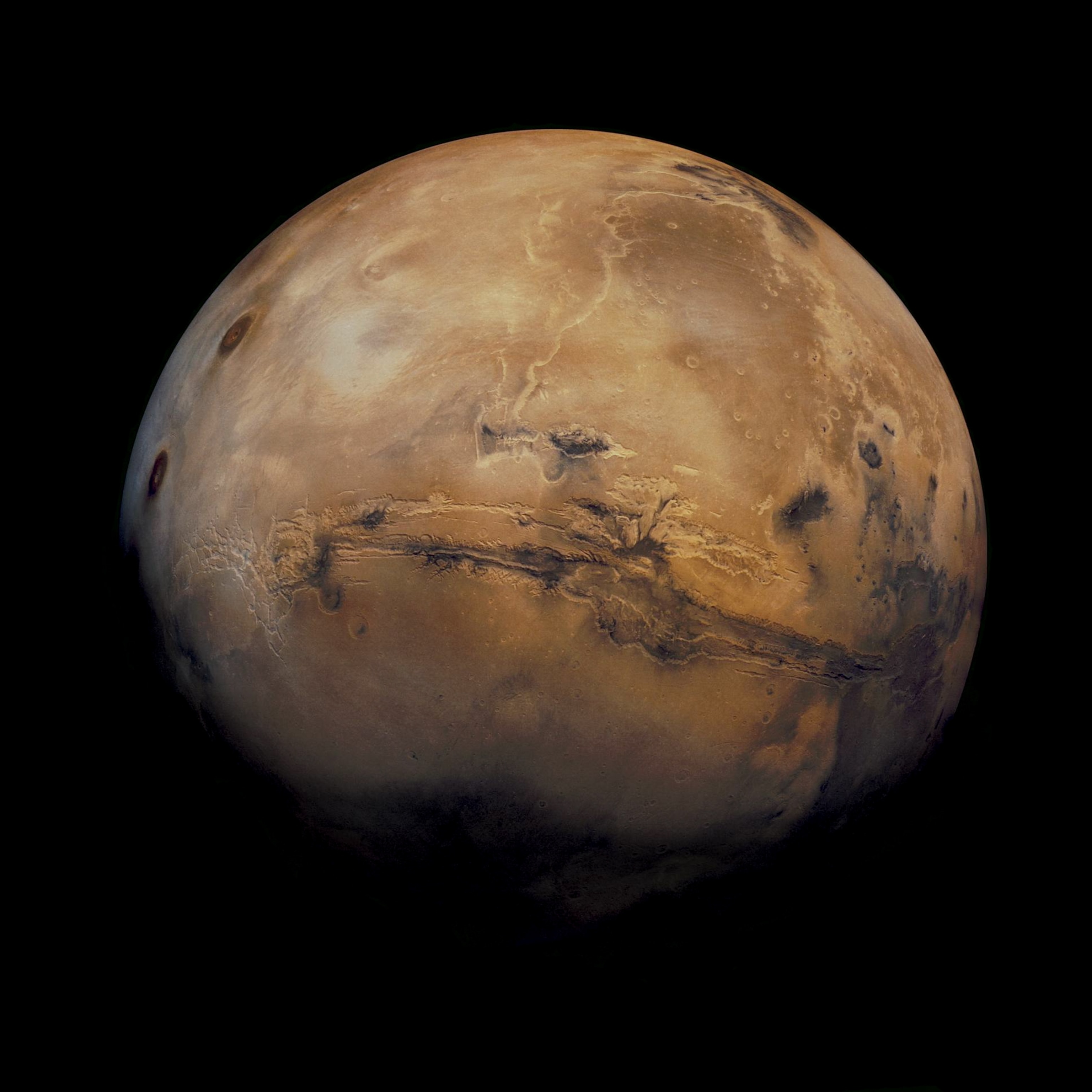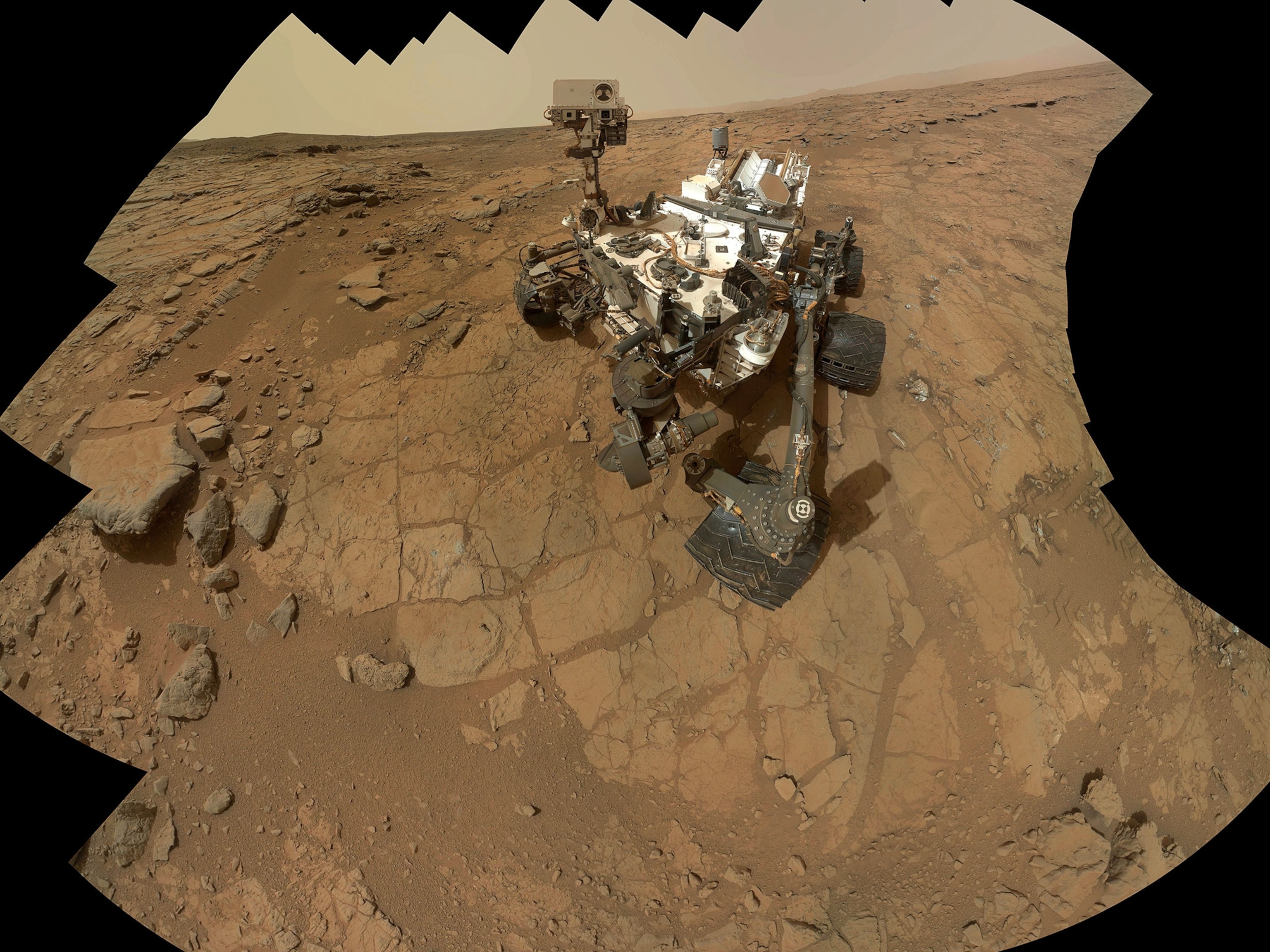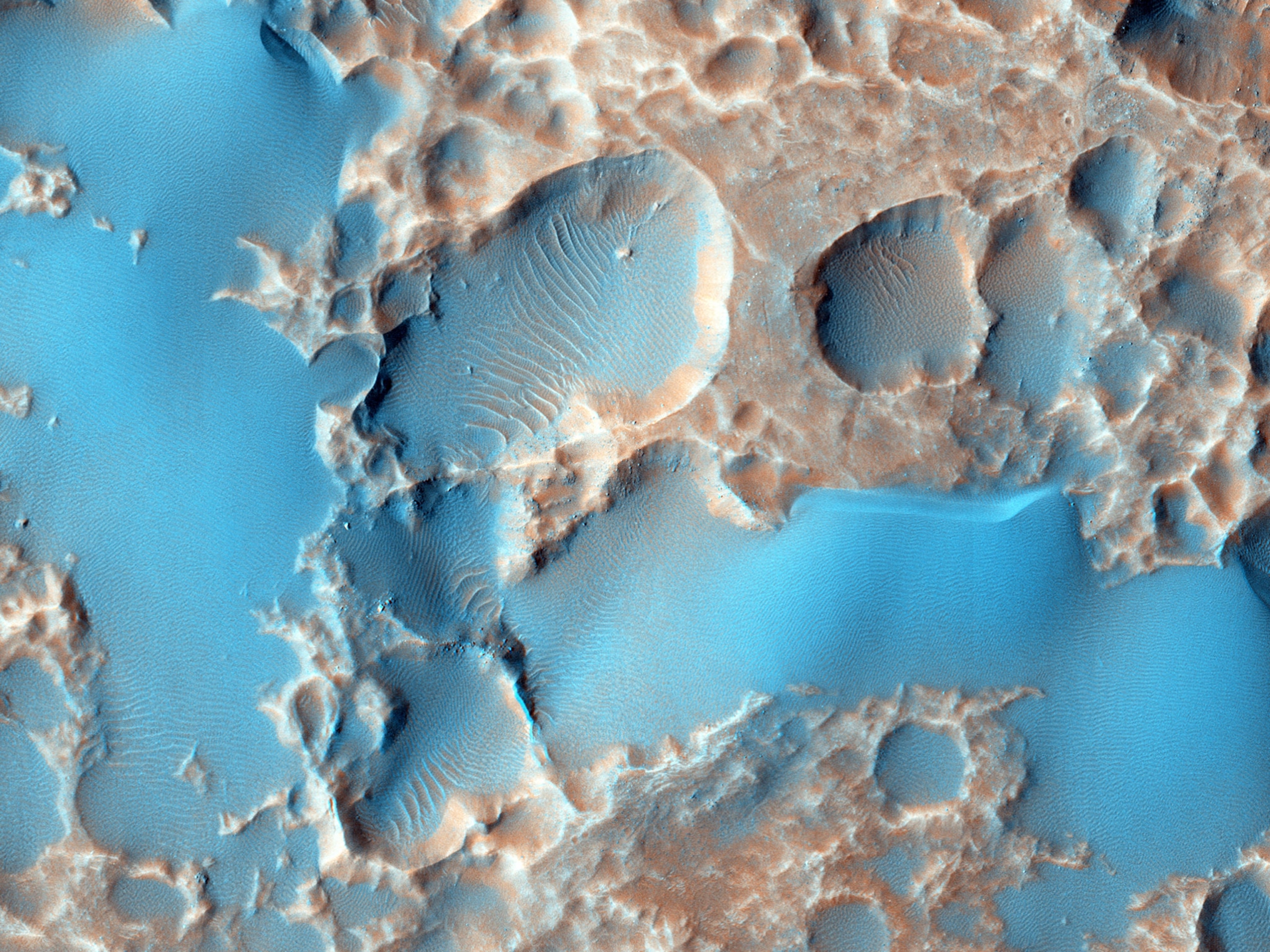
We need to change the way we talk about space exploration
Building a sustainable human presence on other worlds should be open to all. Comparing the journey to violent conquest doesn't help.
When discussing space exploration, people often invoke stories about the exploration of our own planet, like the European conquest and colonization of the Americas, or the march westward in the 1800s, when newly minted Americans believed it was their duty and destiny to expand across the continent.
But increasingly, government agencies, journalists, and the space community at large are recognizing that these narratives are born from racist, sexist ideologies that historically led to the subjugation and erasure of women and indigenous cultures, creating barriers that are still pervasive today.
To ensure that humanity’s future off-world is less harmful and open to all, many of the people involved are revising the problematic ways in which space exploration is framed. Numerous conversations are taking place about the importance of using inclusive language, with scholars focusing on decolonizing humanity’s next journeys into space, as well as science in general.
“Language matters, and it’s so important to be inclusive,” NASA astronaut Leland Melvin said recently during a talk at the University of Virginia.
Lucianne Walkowicz, an astronomer featured in National Geographic’s docudrama series Mars, spent the last year studying the ethics of Mars exploration as the Chair of Astrobiology at the U.S. Library of Congress. We recently spoke with Walkowicz to examine the problems associated with old-fashioned verbiage and to discuss some solutions. What follows is a record of that conversation, edited for length and clarity.
Why is it so crucial to consider the words we use when describing space exploration?
The language we use automatically frames how we envision the things we talk about. So, with space exploration, we have to consider how we are using that language, and what it carries from the history of exploration on Earth. Even if words like “colonization” have a different context off-world, on somewhere like Mars, it’s still not OK to use those narratives, because it erases the history of colonization here on our own planet. There’s this dual effect where it both frames our future and, in some sense, edits the past.
What are some of the problematic narratives the term “colonization” brings up?
One narrative that comes up a lot draws on the history of Europeans coming to the Americas. I’ve seen people talk about the arrival of the first European settlers as this romantic, heroic story of people making it in a harsh environment. But of course, there were already people here, in the Americas, when those historical events happened.
Furthermore, a lot of the Europeans’ ability to live throughout the Americas came at the cost of genocide for indigenous people. I think it’s not intuitive, particularly when we talk to white Americans, for example, to think of the history of Columbus’s journey as a story of genocide. But it’s important to realize that’s what it is.
A lot of those historical narratives are also bound up in the history of slavery, for example, so when we talk about how colonies in Virginia grew from being a few settlers to becoming tens of thousands of people, it’s also important to realize that roughly half of those people came against their own will, and many died along the way.
Has there been an instance of exploration in our history that hasn’t led to the subjugation of native cultures?
Who is “our”?
Planet Earth. Is there a narrative we can use that isn’t just trotting out Christopher Columbus and pretending like that’s a rosy picture?
That is really a question for a historian. I’m not a historian, but I’ll tell you that there probably isn’t a perfectly starched, unblemished narrative that you can draw from. It’s just that we need to not be carelessly using narratives that are still the source of harm to a lot of people.
In addition to “colonization” and its associated terms, what are some words you consider to be problematic when we talk about space exploration?
I think the other one is “settlement.” That comes up a lot and obviously has a lot of connotations for folks about conflict in the Middle East. I think that’s one that people often turn to when they mean “inhabitation” or “humans living off-world.”
Instead, I prefer using a couple of extra words, like “humans living on Mars,” or something that is maybe longer but more specific to what I mean. In the 1970s, Carl Sagan really liked the idea of space cities, because cities have lots of different kinds of people in them, generally speaking. But is a ship full of five people living on Mars actually a space city? Probably not. So, that isn’t necessarily the best solution, either.
What about terms like “manned” or “frontier?”
Yes, I do find “frontier” to be problematic. The implication is not exactly the same for somewhere like space as it is for here, but it similarly draws on the same kinds of narratives that are all based around European settlement. And often, if the word “frontier” comes up, it’s not wrong—until someone spells out the narrative of those brave explorers who went West in the early Americas.
“Manned?” I don’t understand why anyone is still using “manned.” How old is the NASA style guide that says not to use “manned?” It’s been around literally for years [since 2006, to be precise].
Yet it’s all over the place, and people will defend it.
It’s so lazy. Just think about it a little bit.
It seems like the language that we use when describing space exploration necessarily reflects both motivation and access to space. Do you think it’s possible for humans to progress in a way that will allow space travelers to better reflect humanity?
I think that one of the very first steps forward is to stop having our narratives about space only coming from people who are extremely privileged, which in this space means predominantly rich, white, male venture capitalists. That’s really who’s driving a lot of the narratives that are used, and why there’s not a lot of forethought or response to critiques about those frontier, colonialist narratives.
If there’s going to be a really inclusive effort to go beyond Earth, it has to start here on Earth. It can’t just be a tokenization of what the first crew might look like. It really has to be that people from a wider range of experiences and backgrounds—whether that means socioeconomic, racial, gender, whatever—are included in STEM in general. None of those narratives will become more inclusive until the people shaping them can become more inclusive. Otherwise, it’s just lip service.
There are much more direct examples, too. Most notably, Jeff Bezos saying that he has so much money now that he can’t think of anything to spend it on that isn’t space tourism. He lives in Seattle, a city where Amazon itself has changed people’s access to affordable housing. The city has been gentrified out of control, with large new developments that house lots of Amazon employees now sitting on community centers that I cooked food for the homeless in. Or, Elon Musk wearing an Occupy Mars shirt, which is totally and completely ridiculous when compared to what the Occupy movement is. There’s another thing you can’t take out of context.
How confident are you that people will buy into the idea that space is for everyone, and not just a playground for people who can afford it?
The governing document that sets forth all of space law, the Outer Space Treaty of 1967, literally says that space is for everyone. I mean, it’s 1967, so it says “for all mankind,” but if we edit that to be in the sense of the document, the outer space treaty says that space is for humankind, and that it is not to be owned by any individual or nation. It bars things like weapons of mass destruction, and it says outright that you cannot have a military installation on a celestial body.
When you look at the Outer Space Treaty, it’s this really aspirational document that contains a lot of really good things about the ways that we can and cannot explore space. However, if you read indigenous scholarship, or you listen to indigenous people, you’ll know that treaties get broken all the time. Literally every single treaty, over 500 of them that have been made with indigenous nations by the United States, have been broken.
I think that this is the moment, as it becomes more possible for a wider range of actors—whether they be nations or individual or otherwise—to go to space, when we have to decide whether those guiding principles are what we really want. This is the moment when we have to look at that treaty and decide who we want to be in the future.











































